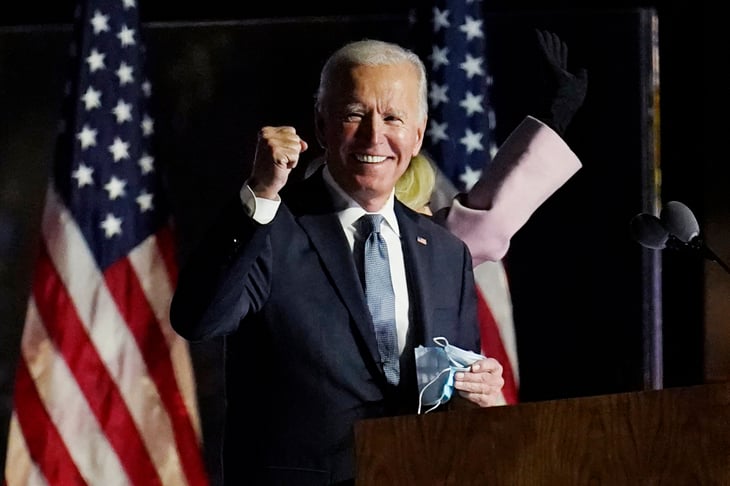
President Joe Biden’s latest executive order, issued July 9, could save Americans money on everything from internet service to health care.
The order calls for “robust competition” among companies in order to foster “more choices, better service, and lower prices” for consumers, while also supporting small businesses and farmers:
“A fair, open, and competitive marketplace has long been a cornerstone of the American economy, while excessive market concentration threatens basic economic liberties, democratic accountability, and the welfare of workers, farmers, small businesses, startups, and consumers.”
It calls for the federal government to undertake 72 initiatives in an effort to create more competition and lower prices, according to a fact sheet accompanying the executive order.
Following are several areas in which you might benefit from Biden’s new effort to build a more competitive marketplace.
1. Prescription drugs

As we mentioned in “Prepare to Pay More for These 31 Drugs in 2021,” drug price hikes happen every year. One of the most clearly named goals of Biden’s new executive order is to lower prescription drug prices through legislative efforts:
“It is also the policy of my administration to support aggressive legislative reforms that would lower prescription drug prices, including by allowing Medicare to negotiate drug prices, by imposing inflation caps, and through other related reforms.”
The order also encourages the Federal Trade Commission (FTC) to issue a rule banning “pay for delay,” a practice in which drug makers pay to keep cheaper generic drugs off the market longer.
2. Hearing aids

Americans with hearing loss will like the sound of this: The executive order calls for the U.S. Department of Health and Human Services to draft a rule within 120 days that would allow hearing aids to be sold over the counter.
The average cost is currently more than $5,000 per pair, the White House says, and often not covered by health insurance. As a result, only 14% of Americans with hearing loss use hearing aids.
If a hearing aid could make a difference in your life right now, check out our story “How to Save Hundreds of Dollars on Hearing Aids.”
3. Flying

Just four airlines control two-thirds of the U.S. market and often raise fees all at the same time — and sometimes hide them — the White House says. Among the top 10 airlines, such fees added up to $35.2 billion in 2018, compared with just $1.2 billion in 2007.
Consequently, the new executive order calls on the U.S. Department of Transportation to draft a rule within 45 days that would require airlines to refund:
- Baggage fees when luggage is “substantially delayed”
- Other fees when service isn’t actually provided — like when a plane’s Wi-Fi or in-flight entertainment system is not working
It also requests, within 90 days, a rule to ensure that consumers receive fee information at the time of ticket purchase.
The Department of Transportation already has acted on some of these requests, as we report in “New Rule Would Make Airlines Pay You Back for Bad Service.”
The goal of such changes is to “make it easier for people to get refunds from airlines and to comparison shop for flights by requiring clear upfront disclosure of add-on fees,” the White House says. As pandemic fee waivers disappear, this would be an especially welcome change.
4. Internet service

The executive order aims to address several issues related to internet service. In the order, Biden calls on the Federal Communications Commission to:
- Prohibit internet service providers (ISPs), cable providers and landlords from making deals that limit the number of providers that renters can choose from.
- Limit early termination fees, which often deter consumers from jumping ship to another service provider.
- Bring back net neutrality rules. As we wrote when they were repealed at the end of 2017: “In effect, the change will allow broadband providers to block websites, or to charge customers extra for premium service or content.”
- Make comparison shopping between ISPs easier by requiring a standardized “nutrition label” — sharing key facts about each provider’s prices, fees and performance.
Such changes could put competitive pressure on internet service providers and lead to lower prices or a better value for consumers.
5. Online shopping

Without naming names, the White House points out that companies that “run dominant online retail marketplaces” have enormous control over small businesses.
They can see how well those small companies’ products sell and then use the data to launch their own versions — and then they can “recommend” or otherwise feature their own version more prominently than the original to goose sales.
Biden’s executive order asks the FTC to establish rules that address “unfair competition in major Internet marketplaces,” which the White House says could help consumers find more new sellers and more affordable products.
But instead of simply waiting for the government to crack down on big online shopping sites, learn about “7 Common Online Shopping Mistakes That Will Cost You.”
6. Electronics repairs

Have you ever tried to do your own repairs on a phone or computer, only to find it difficult or impossible to even open the devices without specialized tools? Or how about being told you’ll void your warranty if you don’t use an authorized dealer?
Biden’s executive order encourages the FTC to create rules against “unfair anticompetitive restrictions on third-party repair or self-repair of items.” And as we recently wrote in “FTC Blasts Manufacturers for Making Product Repairs Difficult,” more than half of states are already considering “right to repair” legislation of their own.
That could make it more practical to fix your own stuff affordably, or at least to find a pro who won’t charge an arm and a leg.





Add a Comment
Our Policy: We welcome relevant and respectful comments in order to foster healthy and informative discussions. All other comments may be removed. Comments with links are automatically held for moderation.